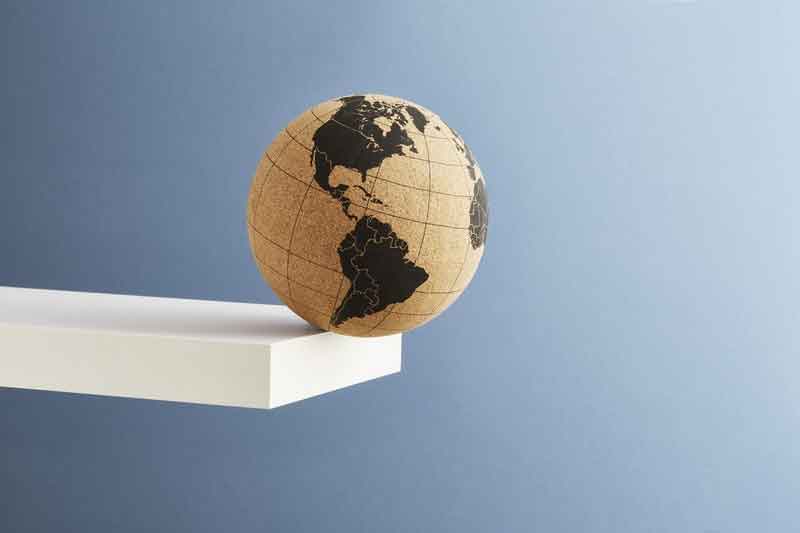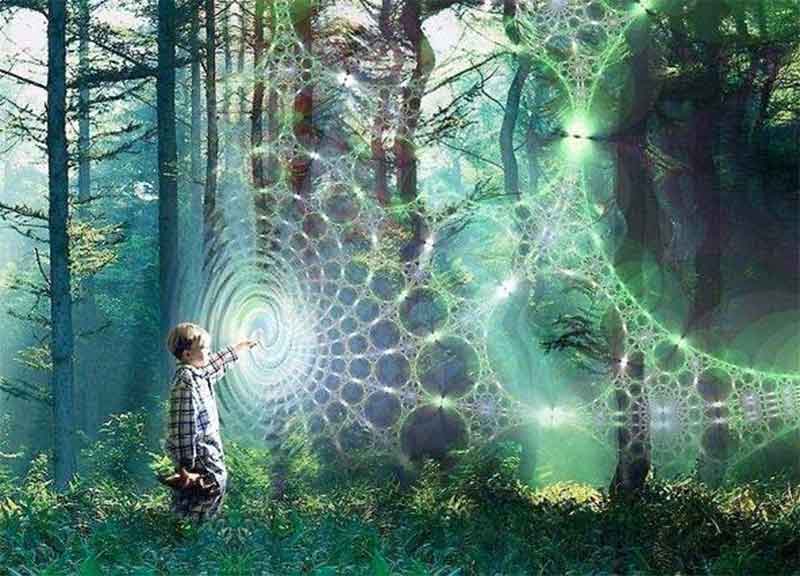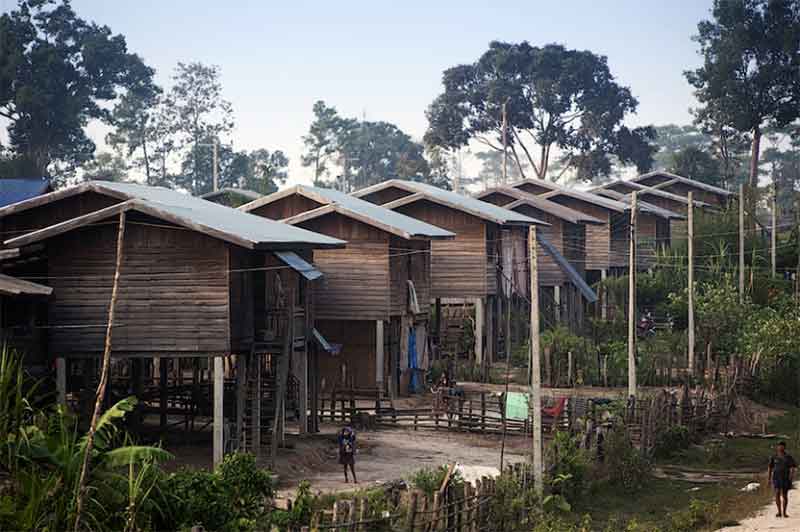
We need to change our ways! Unless you’ve been living in a cave in the last 40 years or so, you’d be getting a pretty strong message about that pretty much every day. No more “blah blah”, no more excuses, no more pseudo airy fairy technological fixes, we have to stop polluting, we have to stop destroying habitats, in other words we have to change our ways and/or restrain ourselves. We know we have to change, we’re on a path to certified Armageddon for possibly ourselves and certainly for what is left of the natural world, and the time frame required to act is fast closing in. For some good news, it actually seems that the need to change is now pretty well accepted as fact.
So where do we go from there once we have accepted that principle, once we know we have to change and are ready for possibly some concessions? What do we actually change? And by how much?
Via a bit of research, it’s quite easy to find out a myriad of things we can do or change to curb our destruction. Unsurprisingly, those actions are principally aimed at changing the habits of people in rich countries which are indeed responsible for the lion’s share of the issues. And basically it can all boil down to our appetite for consumption; literally eating away at the world via overproduction, overconsumption, and the unsustainable and destructive practices used to generate a perceived affluence.
So let’s focus here on what it is we need to change. Let’s examine that point from the perspective of what I would call two extremes views.
The first extreme, you can guess, is all the forces that want to resist any amount of change in the economic machinery, despite having accepted in principle the need to change. Most people by now live in some form of free market economy, meaning that acceptation yet strong reluctance to change is probably shared by a majority. This includes the lowest socio-economic tiers for whom the mirage of a better existence via capitalism is still a strong lure.
So let’s illustrate that point using a simple example. Let’s say that for one reason or another, possibly because of the high carbon footprint of the supply, distribution and retail chain, as well as the ecological impact of crop growing in tropical forests, under a newly formed international agreement, it has been proposed by an international body that coffee imports should be banned in non coffee-producing countries.
After all, because of ecological concern for elephants and other species, ivory movement was effectively banned by the CITES convention ratified by many countries. So why shouldn’t similar restrictions apply to protect the species that are being displaced to grow the coffee crops, and as a bonus to put a dent in the pollution generated by the trade of what is really a non-essential good? Despite claims to the contrary by drinkers, coffee is indeed not essential, it does not grow in affluent temperate countries so the transport footprint is large, and cropping has reclaimed and destroyed vast habitats well beyond the need for consumption in the growing country, the growth of the industry being fuelled by that overseas demand. In a way, banning the export of coffee actually makes as much sense as banning the trade in ivory.
What would then happen from the viewpoint of the majority of people? Well coffee drinkers in importing countries would be outraged of course. How can a privilege enjoyed by so many for so long be now taken away? The right to coffee has now become a fundamental human right! And the whole industry that gravitates around that trade, customs agents, shippers, importers, wholesalers, cafes, restaurants and barristas would erupt at the existential threat such a measure would impose. Even in the country of origin growers would be in disarray at the thought of being extinguished or at least having to convert back to much less lucrative crops. On both sides governments would be up in arms at the loss of revenue from all the stakeholders. Something similar probably did happen when ivory trade was banned, but justifying the slaughter of giant beasts so aristocrats could just have one of their teeth displayed in their living room probably posed a greater challenge.
So no country would sign such a blunt and indiscriminate convention ending coffee imports, never! Beyond the loss of revenue, the loss of popularity for politicians would be an even bigger deal breaker for those professional crowd pleasers. No way José, we’re not signing that, you’ll have to find other ways to stop habitat destruction and to reduce your carbon footprint. Maybe bring out a few inspectors to certify the coffee plantation as sustainable because you make sure you send whatever animals are being displaced for the new clearing in some reserve or zoo, and give some money for someone to plant a few pine trees in the Sonoran desert, that should cover it plenty!
And yes, sure, if there is a species of cute monkey that lives in an area next to the existing plantation, avoid that area at least for the time being, expand where the equally rare but ugly rats live instead. If that’s the price to pay, let’s do that, and it shouldn’t cost coffee drinkers more than a couple of extra cents per cup. Problem solved! We all know that’s a lie but we are very good storytellers, we’ll manage to find a mental way to convince ourselves that we’ve dealt with the issue in a way that is satisfactory… Let’s move on to something more important, like how much money to spend on nuclear missile to make sure we can never use them!
Okay, let’s now look at the other extreme viewpoint. Let’s have the perspective of a paleo-ecologist for instance. Someone who has studied the past history of planet earth and the evolution of the natural world up to now. Someone who has maybe simply a more developed sense of the finite nature of our world, of the normal time scales and rates of change in which life has flourished, and in some cases collapsed. Someone who has deduced that the current 6th extinction started even before industrialization, before even the advent of agriculture. It might have been on a much smaller scale and at a much slower rate than in the current modern times, but already tens of thousands of years ago that strange naked ape was already wiping out species much faster than background extinction rates. All the large carnivores in Europe, all the megafauna in Australia, those were all extinct within a few thousand years by 20,000 years ago. In fact every human colonization in virgin territory has resulted in profound ecological changes in local ecosystems. And that was the result of a very small number of humans with a relatively small evolutionary advantage compared to the modern man and his panoply of tools of mass destruction which is clearing entire football fields every second that passes.
That person will necessarily have a very different view on what should be done to stop the damage. That person will understand that each species is adapted to a very narrow set of environmental conditions and that any abrupt change that occurs faster than the rate of genetic change in the population exposes the species to extinction. Someone who understands that in nature survival is the exception for a lucky few, that every day is a struggle and not being eaten a victory, a world regulated by famine, disease, competition and predation, and now increasingly by environmental tolerance and man-made pollutants. Not always a pretty world, but a true miracle nevertheless that life persists in its still astounding diversity, for the time being.
That person would know that the only way to avoid the cute monkey species becoming extinct is to spare its habitat in a healthy ecosystem, and to not cause environmental conditions to change faster than how fast species can adapt. That’s it, that’s all that is needed: give it enough room, don’t pollute their habitat and don’t change the climate. Animals in zoos or reserves are just that, animals in zoos and reserves that will just become dead animals if humans stop intervening. Species are embedded within ecosystems, self-sustaining, self-regulating, and have the best chance of survival if left alone.
The paleo-ecologist also reasons in eons. He would dismiss as erroneous any claim by coffee growers that the coffee industry has existed since times immemorial when it has actually been in commercial cultivation for an infinitesimal fraction of the time humans have settled the area. To him/her, that is the real “Big Picture”, not our current and cultural psychopathic bout of self-destruction. To him, the cute monkey was already living there possibly millions of years before man came along, which happened mere millennia ago. Social justice, feminism, the presumed central role of mankind, in fact all aspects of human society are irrelevant in his/her judgment.
That lost and often despised human soul would probably advocate for large scale rewilding, relinquishing the areas on which humans have encroached, and would want to turn off the whole economic and demographic apparatus of the thermo-industrial civilization. Bigger habitats do create more healthy and resilient ecosystems, to him such a measure would be reasonable in light of the objective, which is to let the cute monkey exist rather than to allow rich people to keep getting their caffeine fix.
I personally see less flaws with that reasoning than with that of the previous extreme. Nevertheless that person would probably not be a popular one, and would probably get lynched by angry mobs in a number of countries.
So the big question now is: can humanity find a true middle ground, a solution that produces demonstrably positive outcomes? Not the “blah blah” middle ground, not the path where we are only ever willing to change if it does not threaten the perpetual growth paradigm, regardless of the efficacy of the change. Even with what are currently considered extreme far left views, are we really looking at what we should be doing rather than simply what we are willing to concede? Is there then any point if a rational examination shows that even those measures considered extreme will not make a sufficient dent in our ways to avoid some form of ecological and climate Armageddon? What if increasing public transport and shifting to electric cars and renewable is not enough? What if transitioning to renewables will inexplicably not even deviate the constant increase in greenhouse gases in the atmosphere even when combined with all those offsetting schemes? Four decades after the Rio Summit, how is that decoupling between energy production and atmospheric greenhouse gas concentrations going, by the way?
The real question we should be asking then is: are we ready to do what is required to really let the cute monkey species exist in the wild by giving it healthy habitat and a stable climate? If models show that the rate of clearing even with “sustainable” practices within a perpetual growth model means the monkey will be extinct in the wild in a year, in 10 years, or even in a thousand years, are we ready to stop the export of coffee tomorrow to avoid that? Slowing down destruction is absolutely irrelevant here if the outcome is going to be the same: extinction of the species. Are we ready to peacefully curb our numbers at the rate that is required to halt habitat loss now rather than letting our population eventually plateau in decades and continue its expansion in the meantime, including eventually into the cute monkey habitat? Are we ready to stop adding greenhouse gases into the atmosphere yesterday, as can be physically demonstrated by measuring those levels rather than by using an ever-growing array of accounting tricks? Are we ready to finally stop kidding ourselves, face our shortcomings or impossibilities, and call off all bets regarding any hypothetical technological fixes that would by now probably require the curbing of the laws of physics or further endanger us?
To get back to the coffee example, are we ready to look at each of our actions in day to day life and cull or curtail every one that will be detrimental to the biosphere and ultimately to ourselves? If we are ready to do that, it will probably be a lot quicker to draw up a list of what are acceptable imposts on the planet. However if we are ready to do that, I would say that there is then hope for a viable future for us in a not too degraded world. I would go out on a limb though and speculate that it will indeed require a lot more than just stopping coffee exports. And we need to talk about how to make sure we do what we say we do. Will education be enough? Will coercion be necessary? To show the way, can we still trust the now pathological liars we are mostly now forced to elect in the name of some pseudo-democracy?
Now is the time to have those conversations as Homo sapiens rather than Homo economicus. Now is the time to move beyond the so far hollow messages simply acknowledging that we need to change. Now is the time because when chaos truly hits, coordinated efforts will probably be impossible, let alone collaboration in this incredibly and increasingly bellicose human world. We want and need to transition, that is good, a much better option than opting for a revolution that leads to misery due to lack of preparation. But are we doing enough to avoid such a painful revolution? Are we really asking the right questions, are we planning to change sufficiently to avoid creating the conditions that will lead to such an implosion?
Eric Boglio – I am an anonymous middle class white male living in Australia. I did train as a biologist, worked in aquaculture in research and production, now taking things a bit more slowly.

















































